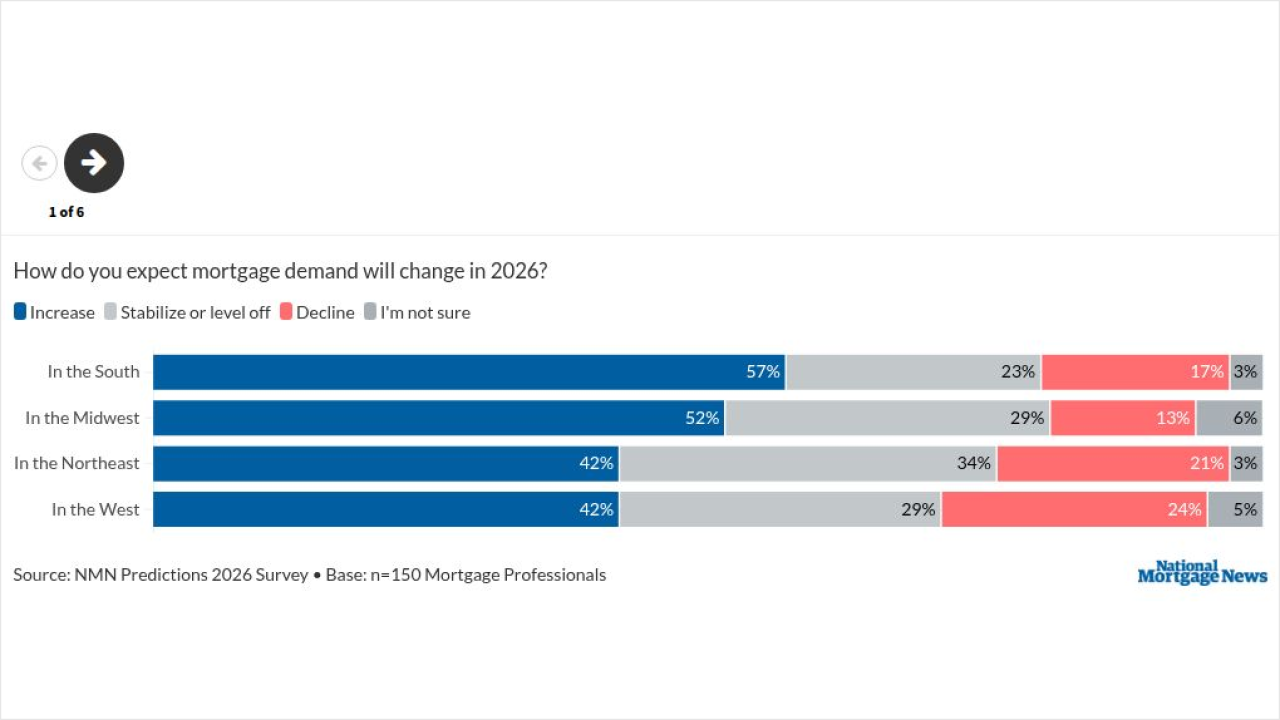Nonbank mortgage employment in 2022 was even lower than initial estimates suggested, the Bureau of Labor Statistics found after its annual adjustment for company filings.
The revised payroll count shows the figures for the number of people on mortgage banker and broker payrolls were overestimated by 10,000 positions or more each month, with steeper declines seen earlier in the year than previous numbers indicated.
The latest statistics show 354,000 people were employed by the industry in December, down from a revised 358,700
Presenting a contrast to the underestimated figures for mortgage employment was the surprising strength of the overall figures for U.S. jobs, which the BLS reports with less of a lag.
"Despite the announced layoffs in big tech, Wall Street and
The addition of 517,000 U.S. jobs overall in January far exceeded consensus estimates for a gain of 185,000 and unemployment dropped to a 54-year low of 3.4%.
Those job gains could boost some housing activity, but in the short term, "mortgage rates matter more," said Yun.
"Robust job data will raise the prospect of consumer price inflation and the need for a more aggressive monetary policy to rein in inflation. So just as
Weak wage growth could also limit the extent to which strong employment will increase investment in housing.
"While it's nice to see more people getting jobs with fatter paychecks, it's hard to ignore the fact that those wage gains have been negative when adjusted for inflation," Beth Ann Bovino, U.S. chief economist at S&P Global Ratings, said in an emailed statement.
Despite the surprising strength in overall employment, Yun noted that some hope monetary policy officials could be getting near the end of their tightening cycle.
"Rents are expected to calm down due to active apartment construction. That will help lower the broader consumer price inflation and halt Fed rate increases by summer. Mortgage rates can then go below 6%," he said.
However, Bovino said the most recent job numbers generally make it likely "the Fed will keep rates at their exit rate higher for longer."
"This may be a good time for markets to rethink their expectation of a rate cut later this year," she said.




